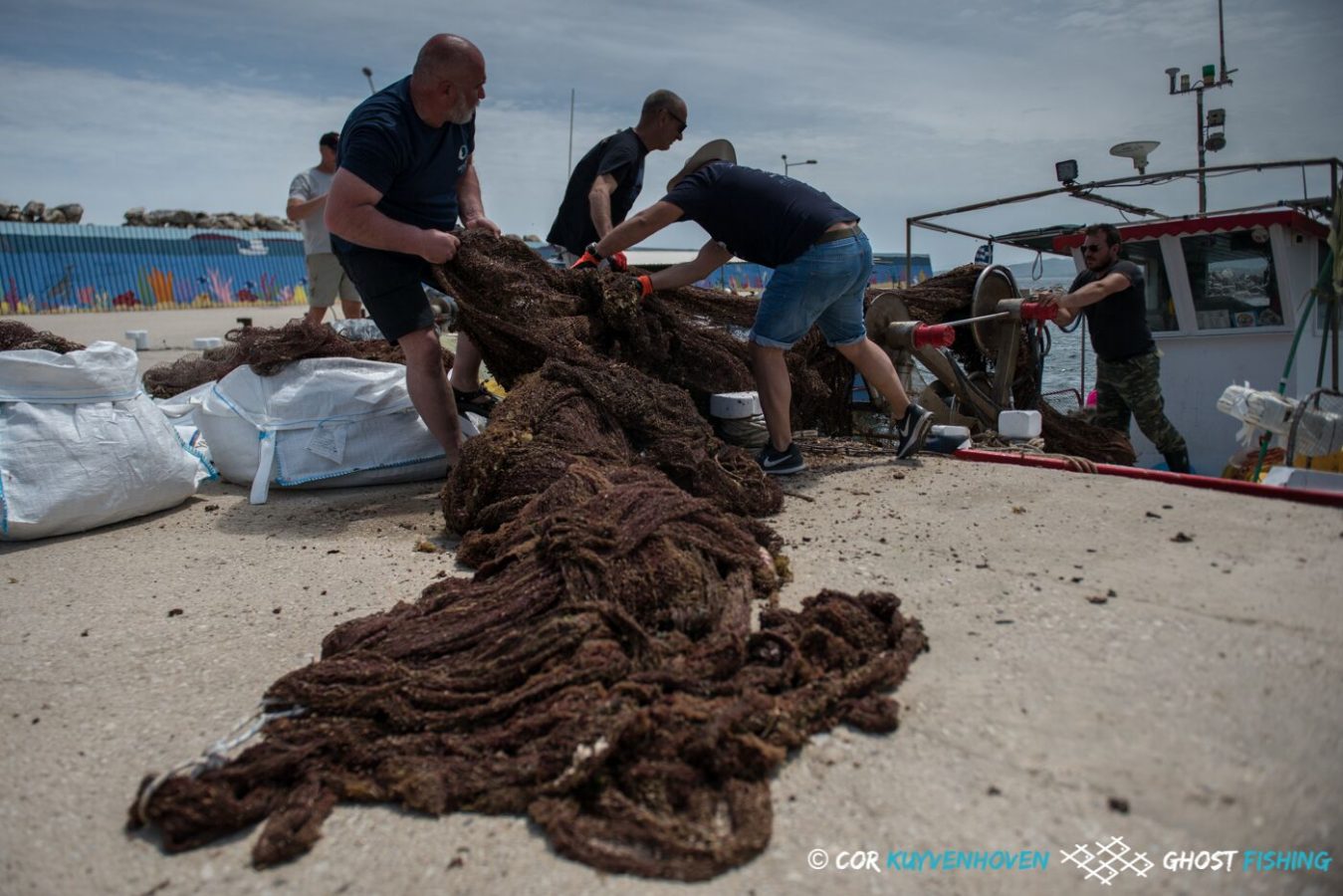On 18th – 20th May 2019, for the second year in succession, the Healthy Seas initiative returned to Stratoni, a small fishing town in Northern Greece, to finish cleaning up a spot inhabited by rich marine biodiversity and which, up to recently, was polluted with an estimated 3 tons of ghost nets. Last November, the diving team removed over 1 ton, and in the previous few days, 4 Dutch and 6 Greek divers pulled out two more tons of ghost nets from the seabed.
The recovery mission was carried out in collaboration with Ghost Fishing Greece, Ghost Fishing Netherlands, AquaTec and UFR Team diving teams as well as Northern Greece Underwater Explorers, with valuable support from the local community. The education programme held on Saturday was perhaps the highlight of the 3-day event, attracting to the harbour children and their parents of the remote community, to meet and greet the divers and see for themselves just how massive ghost nets can be.
Elina Samara, a marine biologist of the newly established Hippocampus Marine Institute also joined the dives:“We spotted an impressive list of species including the protected marine mammal Delphinus delphis, the rough skate Raja radula, the pillow coral Cladocora caespitosa and the gastropod Tonna galea. The removal of the nets will allow the marine life to recolonize its lost habitat and will not pose any future entangling threats to the marine species inhabiting the area.”

The nearby, coastal area of Stratoni is the home of a unique colony of the two seahorse species found in the Mediterranean: Hippocampus hippocampus and Hippocampus guttulatus. These are characterized by the IUCN as “Near Threatened” and are vulnerable to entanglement in nets, and to habitat loss.
The recovered fishing nets will now begin their journey, from waste to wear. First, they will be transported to Diopas S.A, a partner of Healthy Seas in Northern Greece, on to Norwegian company Nofir A.S for cleaning and sorting and then to Aquafil’s plant in Slovenia where, together with other nylon waste, they will be regenerated into ECONYL® yarn, the infinitely recyclable material. This will provide the basis for beautiful new products such as socks, sportswear, swimwear, and carpets. Healthy Seas is an excellent example of the circular economy, where waste is a resource.
This was the first of 4 main events Healthy Seas will carry out during 2019, doing its part to protect the marine environment through ghost net cleanups and raising public awareness besides the regular activities organized throughout the year.
Coming up next for the Healthy Seas initiative is another main event at the Aeolian Islands in Italy, June 3th to 8th (World Oceans Day). Journalists who are interested to join should contact Jenny.ioannou@healthyseas.org